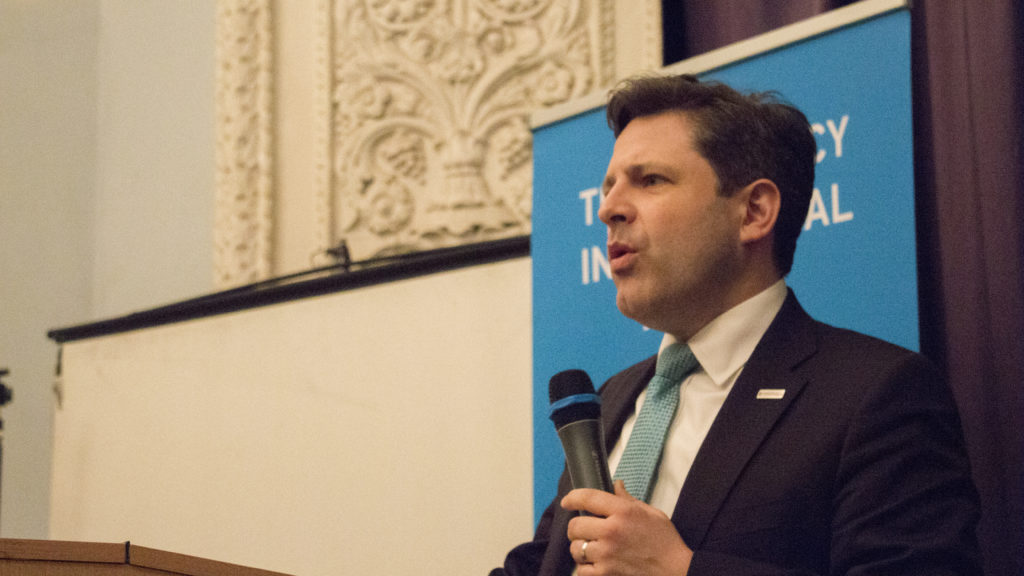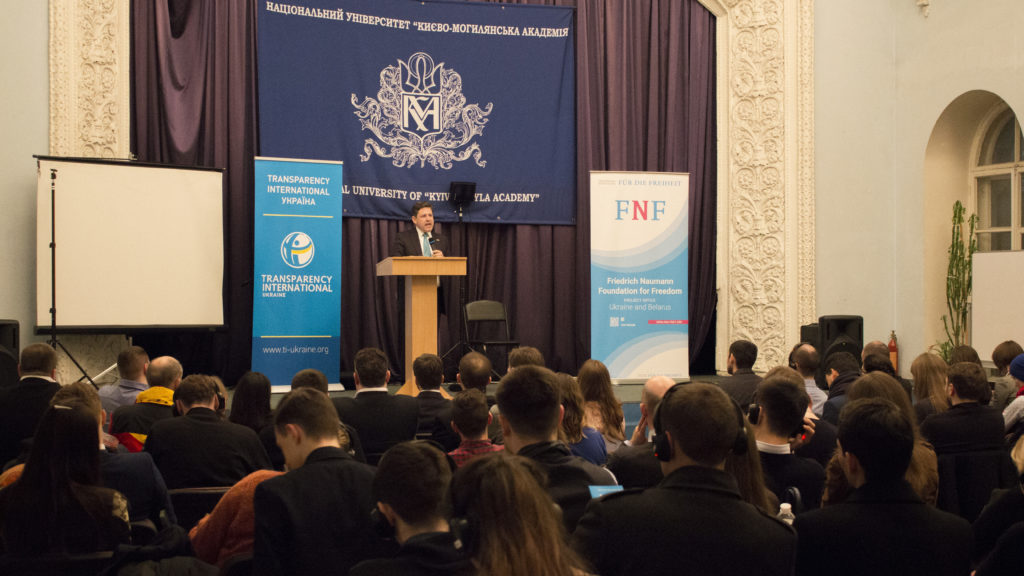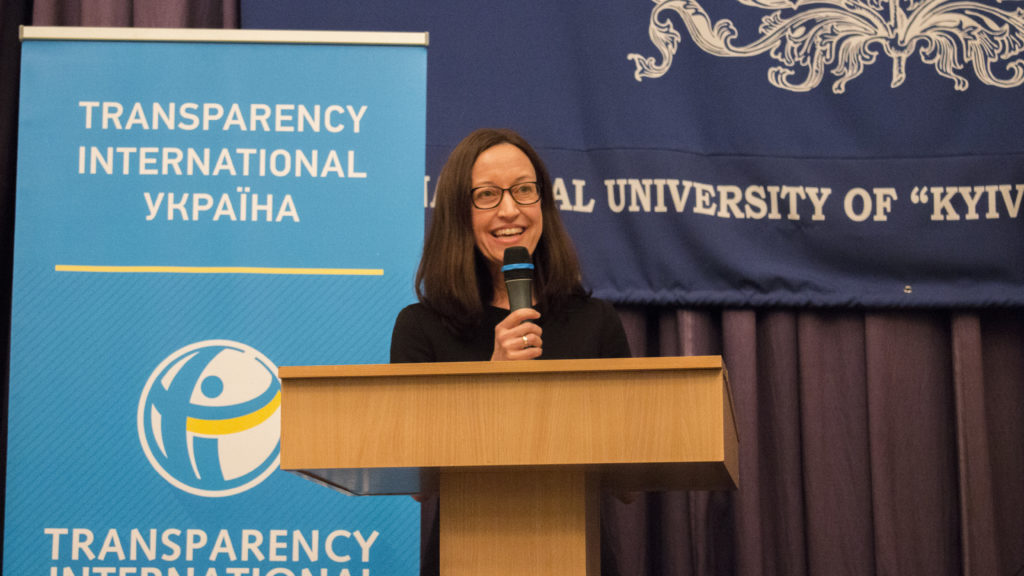How widespread is political corruption in the UK and what are the results of organized anti-corruption measures there? These were the key questions of the «International experience: political corruption in Great Britain. Lessons for Ukraine» lection that took place on March 15 in Kyiv-Mohyla Academy. Duncan Hames, Director of Policy in TI-UK, talked about the features of British legislation and loopholes that corrupt executives use.
Miriam Kosmel, the head of the Friedrich Naumann Foundation’s projects in Ukraine in Belarus, emphasized the importance of citizens’ participation in fight against the corruption. ‘We should figure out how to combine institutional and legislative changes, gain support of every member of society in fight with corruption and solve this number one problem of Ukraine,’ noted Andrii Sliusar, the head of corruption counteraction program of Transparency International Ukraine and moderator of the meeting.
Duncan Hames believes that British experience in fighting corruption will not be completely successful because of the different history and culture. ‘The past reminds us that corruption wants to shape the feature. It evolves, so anti-corruption needs to be a process rather than a set of magic instruments that should only be used once,’ he said. Some political parties of the UK rely on the 17th century practice of ‘privatization’ of positions rather than modern laws. Quite a few of them openly sell privileged access to the government.
Political corruption and corporate sector’s bribery are still objects of investigation in the UK. Because of the weak defensive mechanisms from laundering activities, London is a financial center for corrupt people from all over the world, including many escapees from Ukraine.
The transparency of donation to political parties, established in 2001, is among the successes of the fight against corruption. However, Duncan Hames considers it a reflexive reaction to the corruption scandals.
Unlike USA and France, the UK does not limit political donations. Thus, dependence on the small number of people makes corruption possible. Sponsors threaten to stop the funding and pressure politicians for profitable decisions. Besides, it is easy for the foreigners to make donations, because all it takes is to be registered for ‘doing business’ in the UK.
For instance, more than a half of contributions during the Brexit campaign came from less than 10 people. At the same time, more than 59% of Britons want the financial support of parties from the private sector to be banned (based on Global Corruption Barometer data from 2016).
To become relevant in the changing world again, Duncan Hames encourages parties to try and restore the trust of the citizens. ‘A struggle with corruption requires new ways of thinking and amendments to the laws that are not possible without the full support of political parties and their candidates,’ he noted.






The lecture was delivered with the support of the Friedrich Naumann Foundation for Freedom in Ukraine and Belarus.






